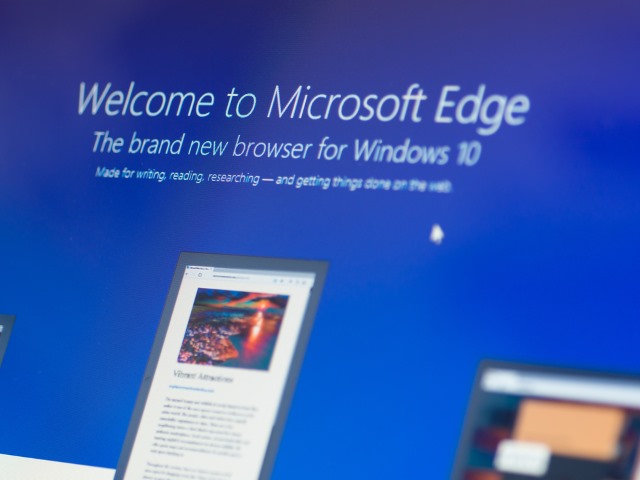
Morphine: a web distraction-blocker you might actually use
However busy you might be, it’s all-too-easy to waste time checking Facebook, Twitter, YouTube, and many other distracting domains.
Browser add-ons can help you block these sites, but they’re often too restrictive. Limiting access is good, but if they go too far you’ll just uninstall them in a day or two and carry on as before.

Chrome's bleeding edge Canary build now available for Android
Google offers a choice of Chrome versions, depending on how close to the cutting edge you want to be. You can choose to run either the stable release, or gain access to additional features by opting to join the beta channel. There’s also Canary, a "bleeding edge" build of Chrome that installs, runs and updates separately from the main browser.
This has previously only been available for Windows or Mac, but it’s now available on Android too.

Google Chrome 55 will drastically improve memory consumption
Google Chrome has received plenty of updates to make it lighter on resources, but it can still be a bit of a hog in certain areas. Its higher memory consumption remains a weak point, as you can easily notice on systems with a lower amount of RAM. However, an upcoming update is touted to greatly lower its footprint.
Google Chrome 55, which is expected to arrive in December, should improve the average memory consumption by up to 50 percent compared to the current release, version 53.

Resize and optimize web images with Tiny Beest Image Optimization for Chrome
Tiny Beest Image Optimization is a free Chrome extension which can resize and optimize web images to reduce their file size.
Once it’s installed, right-clicking an image displays a where you can resize the image to a few standard resolutions (1920px, 1440px, 1280px, 1080px, 600px, 300px). Alternatively, an "Optimize current size" option rewrites the image with lower quality settings.

Mozilla announces Project Mortar to bring Chrome plugins to Firefox
The browser wars continue as Chrome, Opera, Firefox and Edge all vie for attention. One of the biggest draws to any browser is plugin support, and the absence of a particular plugin can make the difference between a user switching allegiances or sticking with their tried-and-tested browser.
With this in mind, Mozilla launches Project Mortar. Its aim is to make the development and maintenance of Firefox as cheap and easy as possible. To do this, it is investigating the possibility of borrowing plugin functionality from other browsers, including PDF and Flash support from Chrome.

How to: Install Google Chrome web browser on Ubuntu Linux (and uninstall Firefox)
Ubuntu comes with a lot of quality software pre-installed. Unfortunately, the default web browser, Mozilla Firefox, has been on the decline -- it is slow and clunky. On Linux, Google Chrome is now the top web browser, and it is the best way to experience Adobe Flash content too (if you still need it).
Installing Google Chrome on the Linux-based operating system is not totally straightforward. This is unfortunate, as the search-giant's web browser is an important part of having an overall quality experience on Ubuntu. Don't worry, however, as we will help you to both install the wonderful Google Chrome and uninstall the disappointing Mozilla Firefox.

Opera 40 unveils free VPN to secure web browsing, improves battery saver
Opera 40 has been released, bringing an easy, convenient VPN feature to the masses. It’s also reworked the battery saver tool, which was introduced in Opera 38, and adds RSS feeds to personal news.
The VPN server allows users to browse the web securely through an encrypted, tunneled connection on any network (including insecure Wi-Fi open hotspots). It also makes it possible to spoof the user’s location, giving them access to otherwise geo-locked content.

Flico identifies landmarks in YouTube videos
Flico is a clever Chrome extension which can identify landmarks in YouTube videos and tell you more about them.
It’s easy to use. If you spot a landmark you don’t recognize, pause playback, click the Flico icon, then "Scan Landmarks", and the add-on goes to work.
Delayed Firefox 49 finally makes its bow, decommissions Firefox Hello
Mozilla has finally released Firefox 49 FINAL for Windows, Mac and Linux. The release has been held back a week due to the need to fix two 'blocker' bugs. The bugs -- which concerned loading Giphly embeds in Twitter, and slow scripts and unresponsive script dialogs when resuming Firefox -- have now been resolved.
Firefox 49 sees the new 'e10' multi-process architecture roll out to more users, plus improves Reader Mode with a new Narrate feature. Fans of the Firefox Hello chat tool will, however, be disappointed to learn that the feature has been decommissioned.

Microsoft re-runs Google tests and shows that Chrome has worse battery life than Edge
The bitch-fest that has been rumbling on between Microsoft and Google is showing no signs of abating. We’re all used to the concept of companies engaging in games of one-upmanship, and this has certainly been the case when these two stalwarts have been slugging it out with their respective web browsers.
The most recent battles have been fought over which browser is the most battery efficient. It’s only very recently that Google claimed that Chrome trounced Edge in battery tests -- Microsoft disagrees. The company has re-run Google’s tests and says that it produced very different results. Rather than showing that Chrome offers the best performance when it comes to playing video, this second batch of tests shows -- unsurprisingly -- that Edge is the best by quite some distance.

Find edited and hi-res versions of an image with TinEye
You’ve found what looks like a great image online, but there’s a problem: it’s so lo-res that it’s almost unusable. Google’s image search may be able to help. In Chrome, right-click the picture, select Search Google for Image and click Large, if available, to see higher resolution versions of the same shot.
Google’s tools are useful, but TinEye takes it to the next level, locating more images, more precisely, even if they’re cropped or edited.

How to increase Chromebook volume
Fast boot times, long battery life, low prices -- there’s a lot to like about Chromebooks. But there can also be issues, like the low volume you’ll sometimes get from the more feeble internal speakers.
Google for advice and the top hits offer advice like "turn the volume up in Settings", which isn’t a lot of help for most users.

Lyrics Here instantly displays lyrics on YouTube, Spotify, SoundCloud, more
There are many ways to find lyrics to whatever you’re playing online, but they’re usually slow, inconvenient, maybe inaccurate, and sometimes all three. Lyrics Here is a browser addon for Chrome, Firefox and more which instantly finds and shows the lyrics for whatever you’re playing on YouTube, Spofify, Deezer, Google Music, SoundCloud and 40+ similar sites.
There’s nothing to set up or configure. Just visit YouTube or a music site, find and play something, and a new pane quickly appears (usually at the same time as playback starts) with the song title and lyrics.

Chrome to warn users of insecure HTTP sites that transmit passwords or credit card info
With Chrome, Google is on a mission. A mission to make the internet a safer place. Its ultimate goal is to display a warning that HTTP sites (rather than HTTPS) are insecure, but this is a long-term plan and there are many stages to go.
Starting at the beginning of next year in Chrome 56, the plan moves to its next stage. As of January 2017, any HTTP sites that transmit passwords or credit card details will be flagged up as being insecure.

Vivaldi introduces scheduled themes and individually sized Web panels
Vivaldi Technologies has unveiled Vivaldi 1.4 FINAL and Vivaldi 1.4 FINAL 64-bit, a major update to its web browser aimed at those wanting maximum control over their browser’s look and functionality. Vivaldi is developed by a team led by Opera co-founder Jon S von Tetzchner, and runs on Windows, Mac and Linux.
Version 1.4’s headline new feature is support for scheduled themes, which builds on the recent introduction of customizable themes. Other notable changes include greater flexibility over Web panels, and a single-click option for reversing an accidentally closed tab.
